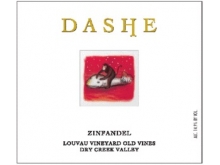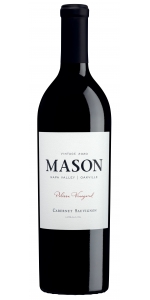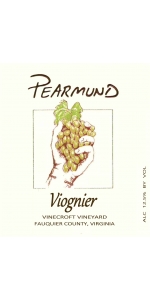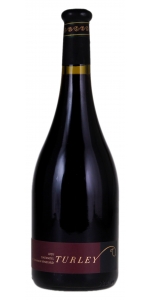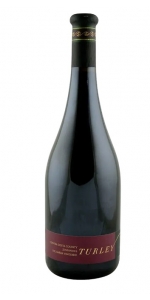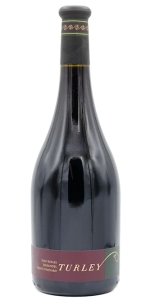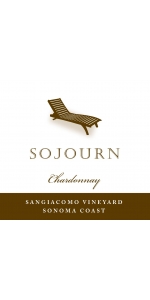Dashe Cellars Zinfandel Louvau Vineyard 2009
| Country: | United States |
| Regions: | California California (Sonoma County) |
| Winery: | Dashe Cellars |
| Grape Type: | Zinfandel |
| Vintage: | 2009 |
| Bottle Size: | 750 ml |
Mason Cellars Pelissa Vineyard Cabernet Sauvignon is made from 100 percent Cabernet Sauvignon.
The 2020 Mason Oakville Cabernet Sauvignon is quintessentially Oakville from nose to finish. Attractive fresh blackberry, red current and chocolate with a hint of sweet oak boast out of the glass. This wine showcases graphite, velvety tannins and concentrated, beautifully balanced flavors with a bit of spice and white pepper. These bold flavors typical of Oakville Cabernet are rounded out with velvety tannins, a weighty mid-palate and a long, juicy finish.
Production Notes:
The fruit was delicately hand-picked in the early morning hours and brought into the winery for processing. The grapes were crushed, about 60% whole berry, and cold soaked for three days before being inoculated for primary and malo-lactic fermentation. Once dry, the wine was put down to barrel for 20 months in medium toast French oak, 25% of which was new.
Vineyard Notes:
Grapes for our 2020 Mason Cabernet Sauvignon are sourced exclusively from the Pelissa Vineyard in Oakville. This vineyard spans 60 acres and is planted to Old BV Clone 7 Cabernet Sauvignon as well as Zinfandel. This vineyard is named for Andrew and Babe Pelissa, who after their marriage on August 30, 1930, made their home at the site of this vineyard which, at the time, was a dairy. Oakville is the core of Napa Valley’s famed Cabernet Sauvignon production, and this site is no exception with the flawless blending of climate and soil to create a remarkable wine.
Review:
“This firmly structured, well-balanced wine has the feel of a classic Bordeaux blend. Just-ripe red and black fruits blend with subtle toast, cedar and mint on a moderately tannic, slightly tangy texture. The wine is tasty enough to decant and drink soon with grilled lamb chops or roast chicken. Best from 2026–2036.” – Jim Gordon
-Wine Enthusiast 94 Points
Pearmund Cellars Viognier Vinecroft Vineyard is made from 100 percent Viognier.
Explosive tropical fruit flavors: Pineapple and peach with hints of grapefruit. Powerful, yet feminine.
Sweet and ripe on the palate with peach, apricot, pineapple, and mango notes. Long and flavorful finish.
Turley Kirschenmann Vineyard Zinfandel is made from 100 percent Zinfandel.
Organically farmed, own-rooted, head-trained and dry-farmed vines planted in 1915 in the silica-rich sandy soils of the east side of the Mokelumne River AVA. Marking the 10th vintage of this wine, bright ripe red fruits, raspberry preserves, and white pepper burst forth from the glass. Precise on the palate like a perfectly seasoned piece of meat, with more red berries and a sumptuously complex texture.
Review:
The 2023 Zinfandel Kirschenmann Vineyard is one of the best wines I have tasted from this site, as it has more textural depth and resonance than is typically the case. As always, the Kirschenmann Zinfandel is aromatic and lifted. In 2023, it is a bit more complex and nuanced than it often is. Bright red-toned fruit and floral overtones linger. This is such a pretty wine.
Vinous 92-94 Points
After working with the fruit for over a decade, Turkey is proud to present the first single-vineyard bottling for Turley from the Del Barba Vineyard. Contra Costa is a delta where the San Joaquin and Sacramento rivers meet, and these head-trained vines are planted in deep dehli blow sand, made up of decomposed granite coming down from the Sierra Mountains. The resulting wine embodies the best the delta has to offer: silken textures, ultra fine tannin, and dark saline fruits.
Review:
"The 2023 Zinfandel del Barba is ripe, boisterous and super-expressive. Floral overtones and bright acids run through a core of red/purplish fruit. Sandy soils confer lovely aromatic presence to this pure Zinfandel. This is an especially accessible offering from Turley."
-Vinous 91-93 Points
Turley Pesenti Zinfandel is made from 100 percent Zinfandel.
This certified organic estate-owned vineyard was planted in the 1920s on primarily limestone soil. Though the vines are head-trained and dry-farmed, the soil plays the most important role in distinguishing this vineyard on the west side of Paso Robles. The wines have a brightness, with chalk and floral characteristic aromas unique to the site, and to Zinfandel in general.
Review:
Dark and brambly, with brooding plum and blackberry flavors accented by licorice, clove and smoked pepper tones as this builds grip toward medium-grained tannins. Drink now through 2035. 2,387 cases made.
-Wine Spectator 93 Points
Sojourn Chardonnay Sangiacomo Vineyard is made from 100 percent Chardonnay.
The core of Sojourn Sangiacomo Vineyard Chardonnay is from the same vineyard source as the highly-acclaimed Sojourn Sangiacomo Vineyard Pinot noir wines. This wine features a combination of Clone 95 Chardonnay from Sangiacomo Roberts Road Vineyard and Old Wente Clone from Sangiacomo Vella Ranch. The Roberts Road block, planted in 1998, provides minerality and vibrancy. The Old Wente Clone selection is known to produce distinctively small clusters, low yields, and results in elegant, complex wines that round out this blend. These ranches are perfectly suited for growing Chardonnay, with cool climates and well-draining soils.
Sojour Chardonnay is fresh and lively, fruit-forward with bright acidity, stone fruit, citrus and apple flavors that leave your mouth watering.
Dashe Cellars Zinfandel Louvau Vineyard 2009 is made from 100% Zinfandel
Lots of black raspberry and chocolate on entry. Substantial tannins which are both supple and velvety. Complex blend of red fruit, chocolate, clove spice, full-bodied, long sweet finish of black raspberry fruit and spice. Shows a beautifully long and spic
"Sleek and elegantly styled, offering floral raspberry and dill aromas that lead to focused cherry, anise and white pepper flavors. Drink now through 2017. 242 cases made. –TF"
- Wine Spectator (April 30th 2013), 90 pts
HISTORY
PRODUCTION
The Dashe Cellars Estate
Dashe Cellars were founded in 1996 by Anne and Michael Dashe, a husband and wife winemaking team who created a small winery that focuses on wines from Sonoma County. Since Anne's winemaking origins are French and Michael's are American, they wanted to elaborate distinctive wines that offered the best from both of their countries of origin.
The Dashe Cellars Vineyards
They have decided to concentrate on single vineyard sites - to locate small independent vineyards and create wines that reflect the vineyards unique soil, climate, and regional characteristics. They use traditional fine winemaking techniques such as small lot fermentations, the use of indigenous yeast on the grapes to conduct the fermentations, little or no fining or filtration, and small barrel aging. All the wines are made, tasted, and blended by the production team of Michael, Anne, and Matt Smith (enologist).
- back
Tenute Silvio Nardi Brunello di Montalcino is made from 100 percent Sangiovese.
Quite intense ruby red color with garnet highlights. Intense and complex aromas at the nose, rich in ripe fruits, spices and toasted notes. Smooth and bodied at the palate, with great persistence, elegant and wide concentration. Tannins are dense and velvety.
Reviews:
Blackberry, black-truffle and black-cherry aromas follow through to a medium body with juicy fruit and a long, flavorful finish. Polished, pretty tannins here. Nicely crafted. Drink after 2026.
-James Suckling 94 Points
In the bottle with the burgundy-colored label, the Tenute Silvio Nardi 2019 Brunello di Montalcino is a layered and generous wine with black fruit, cherry, spice and a hint of Provençal mixed herbs on black olive. There are further hints of underbrush, crushed slate, petrichor from schistic soils, and toasted almond that adds some sweetness from French oak. The tannins are velvety and soft, but this wine is regularly balanced throughout. It's well made in an ample production of 150,000 bottles.
- Robert Parker's Wine Advocate 94 Points
A spicy version, whose black pepper and Szechuan peppercorn notes highlight the core cherry and strawberry flavors. Underbrush and iron accents also enter the mix, while this stays balanced and long as the tannins leave their grip on the finish.
-Wine Spectator 94 Points
Fresh and elegant.
RS : 2g/liter
TA : 5.5g/liter

